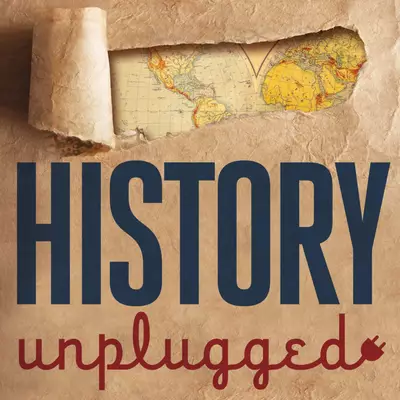Listen on Your Favorite App
Medieval Health Care: Bloodletting, Primitive Surgery, and How Surprisingly Good Doctors Could Be Despite Knowing Almost Nothing
March 01, 2018
00:00
50:08
Listen on Your Favorite App
The Middle Ages were a terrible time to get sick. There was no sanitation inside cities and hardly any in rural areas. The common way to relieve pain amongst sick people was to inflict more pain upon them, and then hope to the stars for a bit of luck. Monks with little to no experience, aside from castrating animals and having access to a few medical books, performed surgery on human beings. The medicine was basic, and the terrible illness that plagued those times was complex.
Yet people came up with surprising ways to cope with illness in this time. In this episode I discuss...Theriac: History’s amazing wonder drug. From the 1st century A.D. to the late 19th century, one medical compound reigned supreme over all other remedies: theriac. First concocted by a Greek king worried about poisons, theriac went from being a general antidote to snake bites to an all around panacea, used to treat everything from asthma to warts, including the Black Plague.How Europe dealt with the plague: It spread from Genoa through Europe, reaching France and England by 1348. Both countries were embroiled in a devastating war that had already spanned many decades, leading many to believe that the sins of men were punishing humanity. By 1350 Germany and Scandinavia, too, had suffered deadly losses. Equally massive were the deaths in the Middle East, as 40% of the population across Egypt through the Levant, Syria, Palestine and Yemen would be lost.Where people think that illnesses came from. Most people today believethat medievals assumed all illnesses came from devilish or demonic sources, or, a variant, from some hidden sin in the sick person. It's more complicated than that. Instead, they first saw all illnesses as coming ultimately from God but also perceived and affirmed many levels of causality, and they were comfortable shifting back and forth between these levels depending on the audience and occasion of their writings.How the foundations of modern medicine were built in the Middle Ages, especially in the Islamic World. Islamic scholars and doctors translated medical texts from all over the known world, including the Greeks and Romans, Persians and Indians. They not only gathered this knowledge and translated it into Arabic (and later into Latin), they added their own medical observations and methods. Islamic doctors developed new techniques in medicine, dissection, surgery and pharmacology. They founded the first hospitals, introduced physician training and wrote encyclopaedias of medical knowledge.
Yet people came up with surprising ways to cope with illness in this time. In this episode I discuss...Theriac: History’s amazing wonder drug. From the 1st century A.D. to the late 19th century, one medical compound reigned supreme over all other remedies: theriac. First concocted by a Greek king worried about poisons, theriac went from being a general antidote to snake bites to an all around panacea, used to treat everything from asthma to warts, including the Black Plague.How Europe dealt with the plague: It spread from Genoa through Europe, reaching France and England by 1348. Both countries were embroiled in a devastating war that had already spanned many decades, leading many to believe that the sins of men were punishing humanity. By 1350 Germany and Scandinavia, too, had suffered deadly losses. Equally massive were the deaths in the Middle East, as 40% of the population across Egypt through the Levant, Syria, Palestine and Yemen would be lost.Where people think that illnesses came from. Most people today believethat medievals assumed all illnesses came from devilish or demonic sources, or, a variant, from some hidden sin in the sick person. It's more complicated than that. Instead, they first saw all illnesses as coming ultimately from God but also perceived and affirmed many levels of causality, and they were comfortable shifting back and forth between these levels depending on the audience and occasion of their writings.How the foundations of modern medicine were built in the Middle Ages, especially in the Islamic World. Islamic scholars and doctors translated medical texts from all over the known world, including the Greeks and Romans, Persians and Indians. They not only gathered this knowledge and translated it into Arabic (and later into Latin), they added their own medical observations and methods. Islamic doctors developed new techniques in medicine, dissection, surgery and pharmacology. They founded the first hospitals, introduced physician training and wrote encyclopaedias of medical knowledge.
See omnystudio.com/listener for privacy information.
More Episodes
See all episodes
Meet Your Host

Scott Rank is the host of the History Unplugged Podcast and a PhD in history who specialized in the Ottoman Empire and modern Turkey. Before going down the academic route he worked as a journalist in Istanbul. He has written 12 history books on topics ranging from lost Bronze Age civilizations to the Age of Discovery. Some of his books include The Age of Illumination: Science, Technology, and Reason in the Middle Ages and History’s 9 Most Insane Rulers.. Learn more about him by going to scottrankphd.com.
